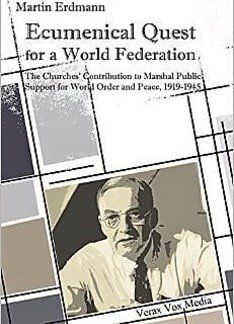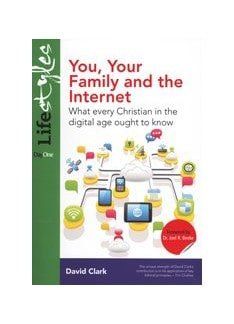While evangelicalism in America appears outwardly robust and healthy, all is not well beneath the surface.
American evangelicalism is losing confidence in the sufficiency of the Word of God. The Scriptures are under attack.
Of course, this is nothing new; we can trace such attacks to the Garden of Eden. What is new in evangelical circles is the packaging. Let’s back up for a look at recent church history.
Recent history
In the 1920s and 30s differences between conservative and liberal churches came to a head in America. Out of that controversy arose new denominations, fellowships, schools and missions which separated from those who no longer believed in biblical Christianity. These organisations were founded by believers who desired to hold fast and ‘contend earnestly for the faith’ (Jude 3). But one of the big problems at that time (and still today) was developing a consensus concerning the essentials of the faith.
Which doctrinal truths were absolutely necessary? What did all Christians who claimed to be orthodox believe and, conversely, what could be left to individual convictions? In other words, what was non-negotiable?
The fundamentals
A series of volumes, published originally in 1909 and entitled The fundamentals for today, attempted to answer those questions. Written by some of the finest conservative scholars and church leaders of the day, The fundamentals addressed the doctrines of Christology and soteriology. But significantly, almost one third of the essays concerned the reliability of Scripture.
What has become known as the Fundamentalist movement emerged from this background. A ‘Fundamentalist’ was simply one who adhered to the fundamentals of the faith, primarily as set out in The fundamentals. One of those fundamentals was belief in an infallible and inerrant Bible.
As time moved on, those who would become known as ‘Evangelicals’ split from Fundamentalism. Evangelicals still held to the fundamentals of the faith but believed there was room to work with others who denied some of the essentials.
Either way, by definition, all Fundamentalists and Evangelicals professed to believe that the Bible is the only authoritative revelation from God to man, and is without error in the original manuscripts and correct in all it affirms.
The Bible in balance
While Fundamentalists retained a firm hold on this position, there has been considerable weakening on the Evangelical side. For example, in 1976, Harold Lindsell (a former editor of Christianity Today and himself a typical Evangelical) wrote a book called The battle for the Bible.
There he documented the compromise over biblical infallibility and inerrancy then taking place in such evangelical organisations as Fuller Seminary, the Southern Baptist Convention, and the Lutheran Church (Missouri Synod). The book was not well received.
He followed it with The Bible in the balance – an attempt to show the danger faced by the evangelical world because of its eroding view of the Scriptures. He wrote, ‘Today an increasing number of Evangelicals do not wish to make inerrancy a test for fellowship’.¹
His lament throughout the book was that evangelicalism was slowly losing its belief in an inerrant Bible. Conversely, he believed that Fundamentalists were standing firm on the Scriptures.
What of sufficiency?
Few heeded Lindsell’s warning, so that now, forty years later, it is difficult to know what it means to be an ‘Evangelical’. Recently, having made a fruitless effort to define the term, one journal concluded that an Evangelical is anyone who claims to be one!
Lindsell suggested in 1979 that Christians who maintain an orthodox view of Scripture may want to return to the term ‘Fundamentalist’ – even with all its negative connotations.² With this we happily agree if, by ‘Fundamentalist’ we mean one who stands for the essentials of the faith including an inerrant and infallible Bible.
However, many who accept the Fundamentalist label (as originally defined) also have problems in regard to Scripture. While they stand firmly for infallibility and inerrancy, many have sadly compromised on sufficiency.
By ‘sufficiency’ I mean that the Bible is adequate to guide us into all truth pertaining to life and godliness. Based on such passages as Psalm 19; 2 Peter 1:3; and 2 Timothy 3:15-4:2, I believe the Scriptures alone (through the power of the Holy Spirit) are capable of teaching us how to live our lives, how to mature in godliness, how to handle problems, and how to know truth.
Yet the vast majority of both Evangelicals and Fundamentalists no longer believe that the Scriptures are sufficient to communicate the knowledge we need to deal with the issues of life. Instead, they think the Bible needs supplementing by visions, revelations, mystical experiences, human wisdom, tradition, and so on.
No place for mysticism
Mysticism, either in its classical or softer form, is one of the most subtle forces that undermine biblical sufficiency among Evangelicals today. John MacArthur helpfully defines the often-accepted evangelical form of mysticism as follows:
‘Mysticism looks to truth internally, weighing feeling, intuition, and other internal sensations more heavily than objective, observable, external data … Its source of truth is spontaneous feeling rather than objective fact, or sound biblical interpretation’.³
Many of us dismiss the extra-biblical view of revelation held by Charismatics, yet turn around and fall into the very same error – by looking to feelings and experiences for encouragement, strength and guidance in our own lives and ministries. This is not just inconsistent with biblical sufficiency but an outright denial of it.
The knowledge of Christ
But does the Bible really claim to be adequate? In reply consider 2 Peter 1:3 – ‘his divine power has granted to us everything pertaining to life and godliness, through the true knowledge of him who called us by his own glory and virtue’.
How is life and godliness obtained? Through the true knowledge of Christ, which is found only in the Word.
Again, 2 Timothy 3:16-17 reminds us that the Scriptures are inspired by God and are profitable for teaching, reproof, correction, and training in righteousness – so that we might be adequately equipped for every good work.
What else is needed if the Scriptures equip us for every good work and teach us everything pertaining to life and godliness? Why search beyond the Scriptures for things that they alone supply?
Sweeter than honey
Here is the glorious truth – the whole thrust of Scripture implies that the Word alone is sufficient for all our needs. Consider Psalm 19:7-10, where we are told that God’s Word is:
• Perfect, restoring the soul
• sure, making wise the simple
• right, rejoicing the heart
• pure, enlightening the eyes
• clean, enduring for ever
• true and righteous altogether
• more desirable than gold
• sweeter than honey
There is no hint here that the Word is inadequate to equip us for whatever life throws our way. As the psalmist praises the law of the Lord he affirms that no help is needed from any outside source. The testimony is the same throughout the Scriptures. Human wisdom, observations and experiences can add nothing to them.
References
1. Harold Lindsell, The Bible in the balance (Grand Rapids: Zondervan, 1979), p.303.
2. Ibid., p. 320.
3. John MacArthur, Our sufficiency in Christ (Dallas: Word Publishing, 1991), p.32.













